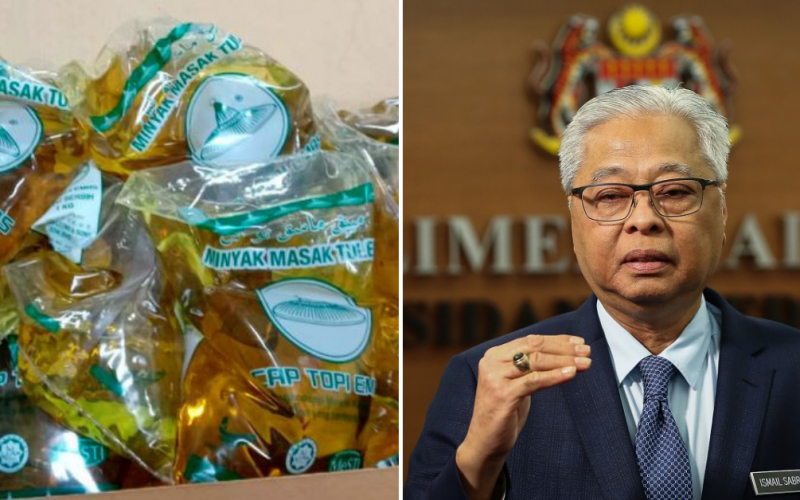A VIDEO of a man halting foreign workers at a grocery store from buying subsidised cooking oil in packets has gone viral. The short clip uploaded on X (formerly known as Twitter) by user @encikmimpizz has already garnered 330,000 views at the time of writing.
The poster said that more Malaysians need to be proactive in ensuring that stores only sell subsidised cooking oil to Malaysians.
Warga Bangladesh,Nepal rembat minyak masak sampai 6paket,
Naseb baik datang brader ni tegur suruh amek minyak botol.
Sepatutnya semua warga Malaysia kena mcmni.tegas. pic.twitter.com/yXQxv3dxPE
— encik mimpi (@encikmimpizz) January 8, 2024
(Citizens of Bangladesh and Nepal grabbed cooking oil up to six packets. Fortunately, this brother here advised them to take bottled oil. All Malaysian citizens should be like this, firm.)
The post has elicited plenty of views that reflect such sentiments. Many believe they are being denied the benefits of subsidies as the precious stock of this essential item is being bought up by migrant workers.
(Wake up, Malaysian citizens. Already two midday political parties. Our subsidies are being taken away just like that by these foreign arrivals. The question is, until when?)
(I salute you, bro. I also want to follow your way. Here in Meru, they’ve finished off all the packet oil.)
Many were of the view that stricter enforcement is required to ensure these subsidised items are only purchased by Malaysians.
(The problem is there are no rules or instructions from @KPDN_HQ regarding this. When I asked the cashiers, they said there were already instructions not to sell to foreigners. The problem is they take three packets each. When five people come, 15 packets are gone. Last week, I went to five shops/supermarkets, and all were sold out.)
However, Domestic Trade and Cost of Living (KPDN) Minister Datuk Armizan Mohd Ali has clarified that there are no restrictions on migrant workers buying subsidised packet cooking oil. Foreigners will be subject to the same purchase limits as locals.
“There are recommendations and suggestions, but what then is the mechanism for us to monitor? If we have to create a (subsidy) system only for packet oil, it is not a cost-effective action for the government and retailers including small grocery stores,” said the Gabungan Parti Sabah lawmaker.
With the number of videos being uploaded on social media on this hot topic, it is unlikely that ordinary working-class Malaysians grappling with the rising cost of living will be appeased by the minister’s response.
The pertinent question that needs to be asked is this – if locals are struggling with the escalating cost of essential goods and raw materials, just how are migrant workers expected to cope?
They will be at the bottom end of the wage scale and struggling to survive in a country where the cost of living is rising. There will certainly be a spillover effect if migrant workers are denied access to subsidised commodities.
Malaysians cannot expect to profit from cheap migrant labour and at the same time deny them some form of assistance.
Moreover, the sheer number of illegal migrant workers has been a cause for concern but the fact remains that many industries are still lacking the required manpower.
This is a thorny subject and access to subsidised cooking oil is but one of the many issues that will need to be resolved. The unity government has its work cut out for it as the country’s economy has been built on the foundation of cheap foreign labour.
At the same time, many Malaysians are feeling overwhelmed by the sheer number of foreign workers in their midst, creating concerns over crime and a variety of other issues, not least of which is access to subsidised cooking oil. – Jan 10, 2023
Main photo credit: Wau Post












